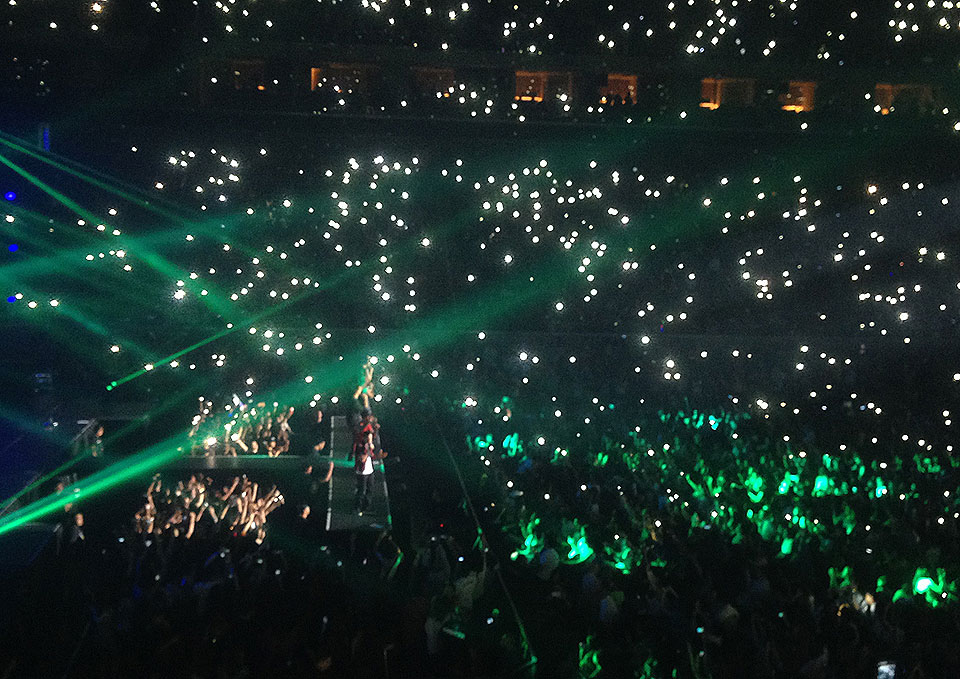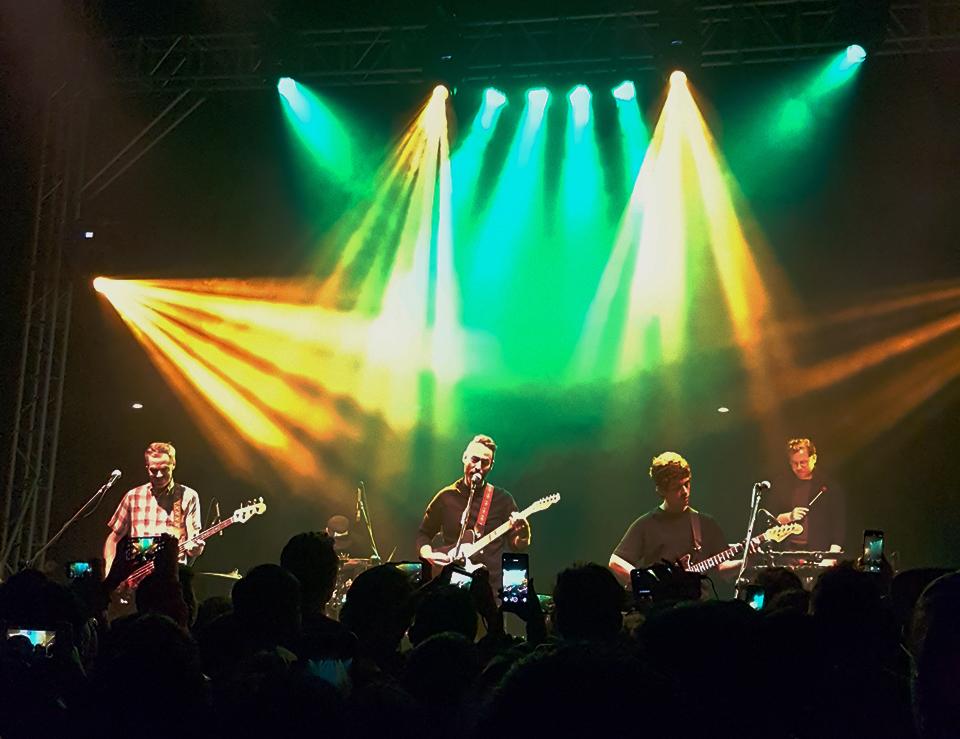The arts in the time of COVID: What is art without an audience?
Some things may not be the same, even after majority of the country shift to a general community quarantine, presumably the “new normal,” starting Saturday, May 16, until the 31st.
Only Cebu City and Mandaue City will remain in the strictest enhanced community quarantine (ECQ) while Metro Manila, Bataan, Bulacan, Nueva Ecija, Pampanga including Angeles City and Zambales will be in a modified enhanced community quarantine based on Resolution No. 37 of the Inter-agency Task Force (IATF) on Emerging Infectious Diseases.
But even if the “new normal” dawns on the majority of Filipinos, that new normal will no longer include some familiar things, at least not yet.
Under IATF guidelines, regardless of the community quarantine, the entertainment sector will not be allowed to operate. That includes cinema, theater, karaoke bars, among other things.
That means you may not be able to watch a film in a theater, or see a ballet performance at the Cultural Center of the Philippines, go to concerts, or listen to your favorite band, live.

Of Monsters and Men concert in 2016. Paul John Cana
Blindspot
Film Development Council of the Philippines (FDCP) chairperson Liza Diño-Seguerra estimates that the COVID-19 pandemic has rendered jobless some 200,000 workers in the live events industry and 150,000 workers in the film and audio visual industry.
“Alam naman natin na kahit magbubukas ang businesses 'pag na-lift na 'yung ECQ, ang cinemas at ang ibang entertainment industries ay sarado pa rin. Kaya right now, survival ang priority ng FDCP," she lamented.
The FDCP has offered an assistance program called the Disaster Emergency Assistance Relief Program (DEAR) that offers up to P8,000 assistance. The funds however are not enough as they could only cover P5,000 per beneficiary.
Another problem is: In order to get government aid, how do we classify cultural workers who, if they do not belong to a company run by a foundation, are mostly freelancers?
Government has subsidy for the formal workers, employees of companies through the Department of Labor and Employment (DOLE), while the informal sector receive help through the Department of Social Welfare and Development or (DSWD).

Backstreet Boys concert in 2015. Micaela Papa
What about the artists?
“Medyo blind spot dahil 'yung mga government programs natin ay nasa formal sector, masasabi mong mga employees, at ‘yung nasa vulnerable sectors para naman sa DSWD. Pero kasi in between ang ating cultural workers, ang ating filmworkers, mga audio-visual workers,” Diño-Seguerra said.
But she said the government should not leave the artists to fend for themselves.
“Kultura — it’s so intangible. Hindi lang puwedeng sabihin na maghanap na lang ng ibang trabaho dahil wala tayong, walang tulong na maibibigay na tulong ang ating gobyerno,” the FDCP chair said.
TV and film production have been allowed to operate partially and the FDCP has come up with new protocols. But where will you show the content?
Diño-Esguerra said the FDCP will come up with a Netflix-type application where local filmmakers can monetize their films.

Phoenix concert in 2014. Mica Ferrer
Frozen
In New York, the COVID-19 pandemic has claimed its first theater production casualty: the hugely popular Broadway musical “Frozen.” Disney has announced it will not re-open once restrictions are eased.
In the Philippines, the Cultural Center of the Philippines has already canceled its scheduled shows for 2020 including the dance season of Ballet Philippines and the theater season of Tanghalang Pilipino.
Ballet Philippines was in the thick of preparations for the re-staging of National Artist for Music Alice Reyes’ “Rama Hari” when community quarantines were imposed on March 15. It was set to open on March 20.
This is the first time ever in CCP’s entire 50-year history that it had to cancel its season.
The pandemic has caused some resident companies to cease operations, putting out of job many of its artists.
CCP’s Artistic Director Chris Millado said the National Commission on Culture and the Arts (NCCA) has rolled out assistance by application to artists.
The CCP is helping artists adopt to online streaming.
“CCP kasi can’t give dole-outs eh unlike NCCA. What we do is we try to protect as many jobs as possible by migrating these jobs online and try to provide new skill sets for our artists so that they could adopt online streaming at least during the time that online streaming is going to be utilized,” Millado said.
Ironic as it seems, the pandemic may be a perfect time for artists to thrive in.
There are stories, and what are artists but chroniclers and storytellers of our times?
“This situation has brought in so many stories to tell. There’s so many feelings, emotions and insights. This is ripe for storytelling," Millado said.

American Football concert in 2019. Ofelia Sta. Maria
World without music?
But where, how and who to show their works to remains a question.
The way live performances are set up, with the interaction between the actors and the audience, attendance and ticket sales exchange are “breeding grounds for infections,” according to Millado.
Asked when, if at all, can the CCP re-open he said: “Honestly, I do not know. This is unprecedented, it has never happened before.”
Innovation may be key for artists to survive, and online may be the way to go as of the moment.
“The audience is online. If you notice, it were the artists who were the very first to go online. And up to now, actively creating content online. Its second nature for artists to create, this is their compulsion to create. That’s why they’re artists,” Millado said.
Tanghalang Pilipino according to Millado has put up “Pansamantalang Tanghalan”, an online streaming platform.
Under the Omnibus Guidelines issued by the IATF on May 16, a provision may be the silver lining for the performance arts industry.
It says that in areas under the Modified General Community Quarantine or MGCQ, public gatherings may be allowed.
“Public gatherings such as but not limited to, movie screenings, concerts, sporting events and other entertainment activities, community assemblies, religious gatherings and non-essential work gatherings shall be allowed provided that the participants shall be limited to 50% of the venue or seating capacity,” it said.
Despite the gloom, Millado remains optimistic.
The pandemic may have closed down shows, shut down dance companies, stopped concerts but Millado said it will not produce a world without music, without theater, without dance.
“I would like to believe that is just like one of the big historical changes that we’re going through but the performing arts should be able to emerge from this, still with its glorious characteristics,” he said.
Glorious, still, either on your phone screens for the time being or hopefully at a theater near you. —KG, GMA News




